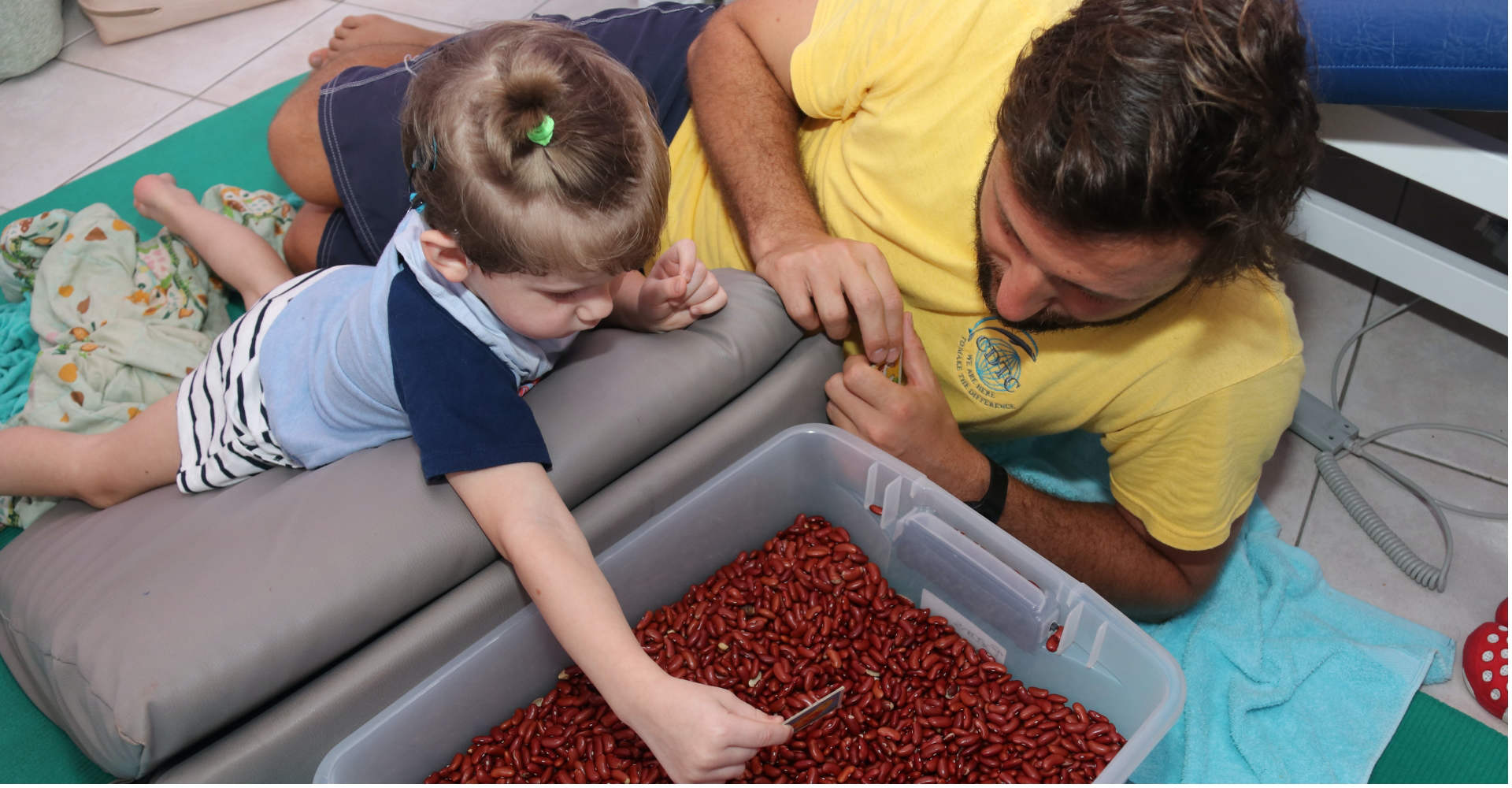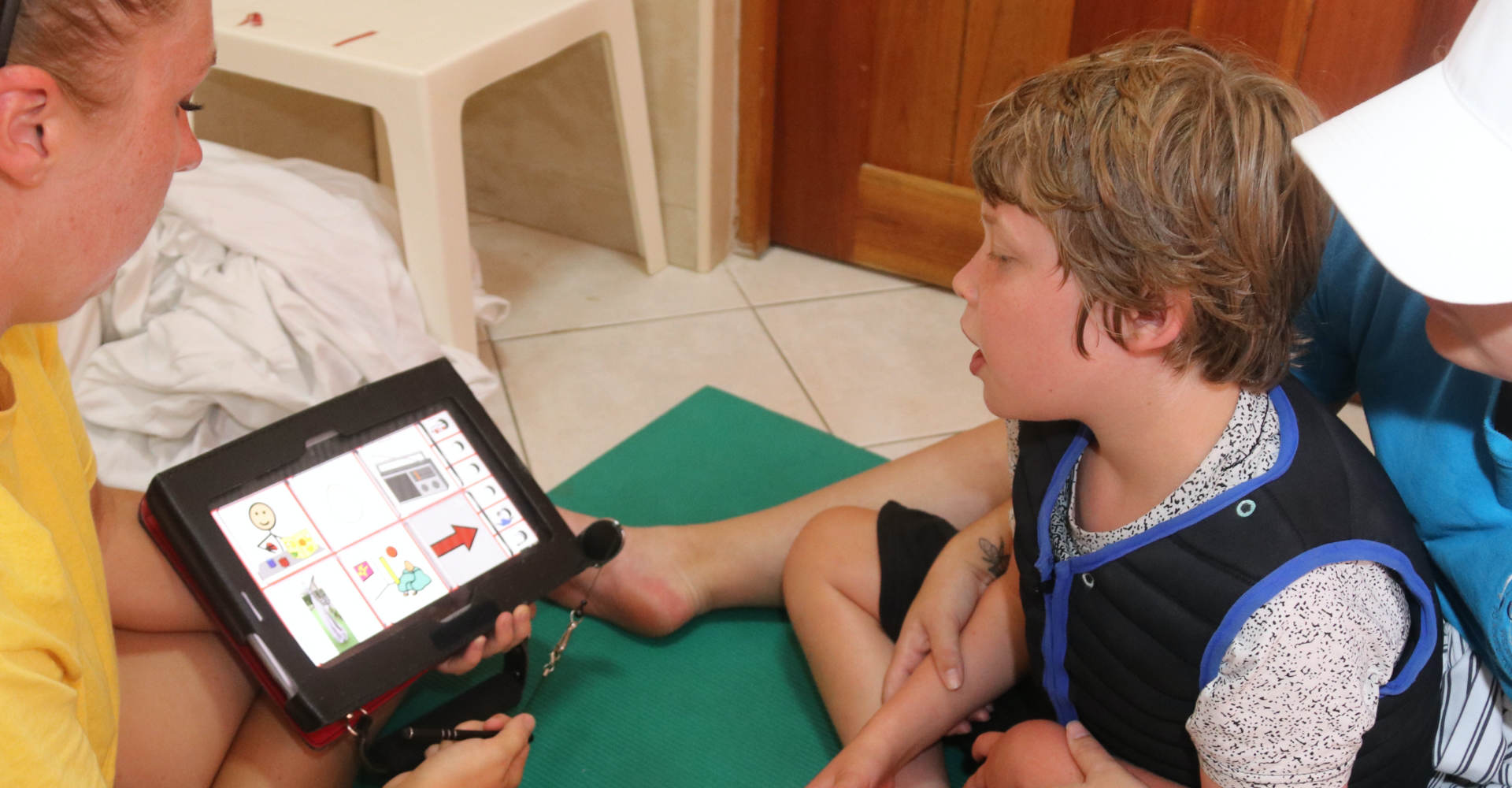
Dolphin-assisted Therapy:
Research
STUDIES PROVE EFFICACY
Intensive animal-assisted therapy with dolphins does not perform miracles. It will not heal patients. However, studies show positive effects with dolphin-assisted therapy. A 2012 study at Munich University was able to demonstrate significant improvements in intelligence, concentration, motor skills, prosocial behavior and other abilities.
In the scope of this study, 157 children diagnosed with autism, trisomy 21, mental retardation and infantile cerebral paresis (ICP) were examined. 103 of them took part in the two-week multidisciplinary therapy we developed at the Curacao Dolphin Therapy Center (CDTC). The children, at the time, were between four and fifteen years old. Data were collected at three different points during the study: directly prior to therapy, after therapy and half a year later. Prior to the actual study, a pre-examination was performed. This study group was compared to children not participating in the intensive therapy program (control group 1: autism, trisomy 21, mental retardation) or children participating in an intensive therapy program at Schön Klinik München-Harlaching (Control Group 2: ICP).

You can find the entire study here:
More publications and studies:
study:
Delphintherapie hilft – Wissenschaftliche Befunde
Der Beweis – Daten aus Eilat und Florida
by Nicole Kohn and Prof. Dr. Rolf Oerter
publication:
Warum hilft Delphintherpapie bei traumatisierten Kindern/Erwachsenen?
by Stefanie von Fallois
study:
Dolphin Assisted Therapy Works:
Scientific Findings from Eilat and Florida
by Nicole Kohn and Prof. Dr. Rolf Oerter
publication:
“Raus aus dem Rollstuhl”
Biofeedback-Therapie liefert faszinierende Ergebnisse
Traumatherapie/Opferhilfe
publication:
Delphintherapie im Kontext der Behandlung von Kindern und Jugendlichen mit Entwicklungsstörungen
by Prof. Dr. Rolf Oerter
publication:
Stellungnahme zur Wirkung der Delphintherapie bei traumatisierten Opfern als Vorwort zu dem nachfolgenden Statement der Psychologin Stefanie von Fallois
by Prof. Dr. Rolf Oerter
publication:
Sozialgericht verurteilt Krankenkasse zur Kostenerstattung
im Adeli-Zentrum, Slowakei
Lesen Sie dieses wichtige Urteil hier:
Please refer to this list
for further publications and studies.
Range of indications for the therapy
Intensive dolphin-assisted therapy can be applied to a variety of conditions and special needs. “delphine therapieren menschen” has decades of experience with the applications and results of this therapy.
In dolphin-assisted therapy, the dolphin has a motivating effect and promotes attention. This makes patient participation easier. Experience shows that this is helpful in the treatment of various diseases and impairments. Corresponding scientific results are already available for some target groups. For example, several studies confirm positive effects on the communication skills and social behavior of children with different impairments (e.g. physical disabilities, autism, Down’s syndrome). There is also initial evidence of improvements in cognitive and motor development for the same target group. Individual studies also confirm positive effects for adults with depression. Apparently, the use of a dolphin can effectively support the achievement of a wide variety of therapy goals that are defined by the therapist.